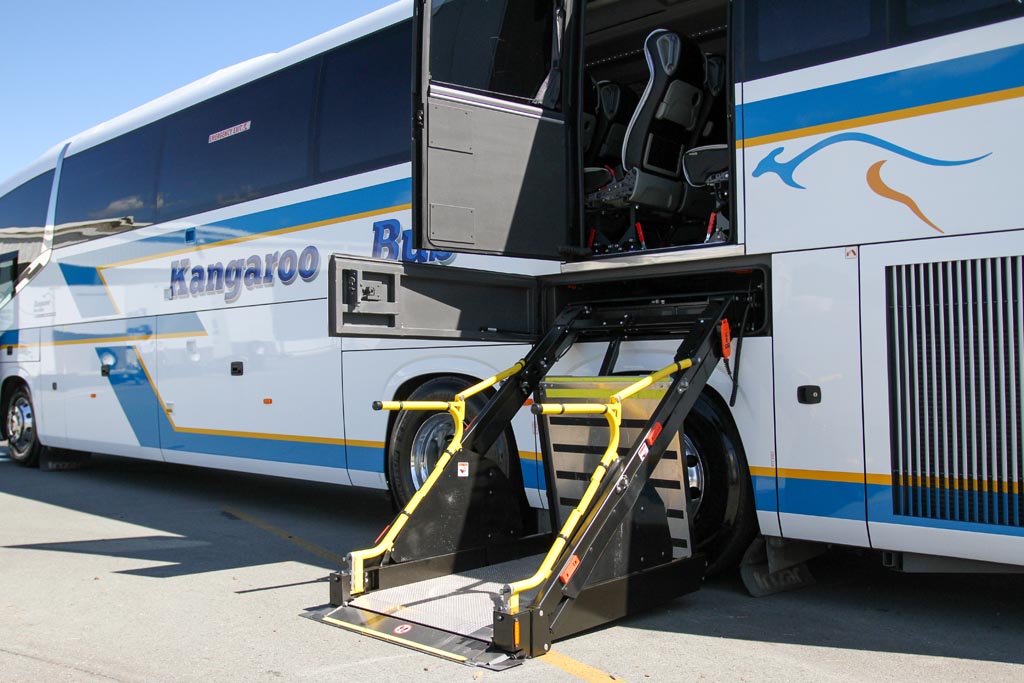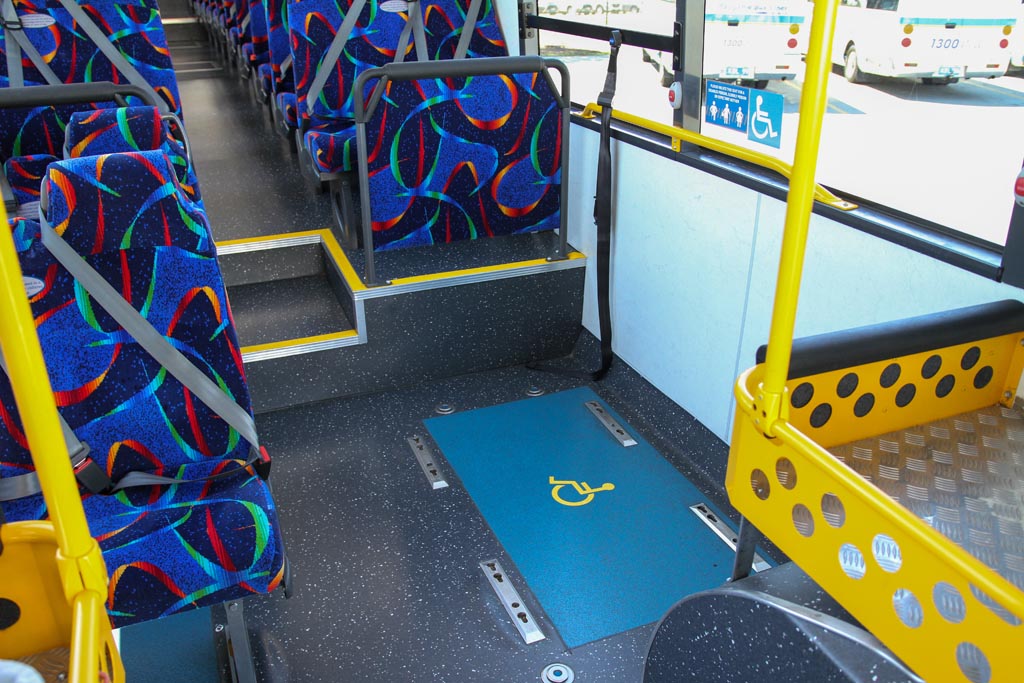key takeaways
By the end of this year, operators must ensure that all buses and coaches used on public transport services fully comply with the Disability Standards for Accessible Public Transport 2002 (Cth) (Transport Standards).
What are the Transport Standards?
Public transport service operators must comply with the Transport Standards made under the Disability Discrimination Act 1992 (Cth), also known as the DDA.
Disability Discrimination Act 1992 (Cth)
This legislation seeks to eliminate discrimination against people with disabilities in key areas of life, including public transport.
The Transport Standards first came into effect on 23 October 2002 and require operators to ensure that all buses and coaches used to provide public transport services comply with minimum accessibility and design requirements.
New vehicles introduced onto public transport services after 23 October 2002 have been required to comply with the Transport Standards from the outset. Operators with existing vehicles in service at this time were given a 20-year period to comply fully with graduated compliance targets. Currently, the relevant compliance target is 80% for buses and 90% for coaches.
From 31 December 2022, all buses and coaches operating public transport services must be 100% compliant with the Transport Standards.
Which services do the Transport Standards apply to?
The Transport Standards apply to vehicles used to operate “public transport services”, which is very broadly defined as an enterprise that conveys members of the public by land, water or air.
Despite this broad meaning, the courts have previously determined that charter services are unlikely to be considered a public transport service, as they usually involve the transportation of members of certain clubs, associations or tour groups, as opposed to general members of the public.
The Transport Standards also currently exempt dedicated school buses from complying with the physical access requirements, but only when the vehicle is used to transport primary or secondary students to or from school or for other school purposes.
What Will Be Required of public transport service operators?
All buses and coaches used on public transport services must comply with the prescriptive requirements of the Transport Standards.
Accessibility items include the need for:
- Boarding ramps;
- Access path on buses (for example, from the entrance to the allocated space);
- Allocated space for mobility devices;
- Manoeuvring areas;
- Signage; and
- Priority seating.
We recommend that all operators review their fleet and operations according to the Transport Standards to ensure that they meet all applicable legal requirements.
Operators should also review the Disability Standards for Accessible Public Transport Guidelines 2004 (No 3) (Cth) to better understand and interpret the requirements of the Transport Standards.
What are my options if I can't comply by this time?
If an operator's fleet is unable to fully comply by replacing or modifying non-compliant vehicles by 31 December 2022, then they may consider:
Equivalent access
Usually involves the provision of direct assistance as an alternative method of accessing the service. Operators should be aware that:
- They must consult with passengers with disabilities who use the service or with organisations representing people with disabilities about any proposal for equivalent access; and
- A segregated or parallel service, such as an accessible taxi service substituting for an inaccessible bus service, does not constitute equivalent access.
unjustifiable hardship exemption
May be relied upon if compliance with a requirement of the Transport Standards would cause unjustifiable hardship on the operator. Several relevant circumstances can be considered in determining whether this exemption applies or not. Operators should be aware that:
- Compliance is required to the maximum extent not involving unjustified hardship;
- They bear the onus of proving that a requirement would impose unjustifiable hardship on them; and
- The validity of this exemption can only be proven once a complaint is made, as the Australian Human Rights Commission will not consider if there is unjustifiable hardship without a complaint being made first.
temporary exemption
Operators can apply to the Australian Human Rights Commission for a temporary exemption from certain requirements under the Transport Standards. Operators should be aware that:
- There is no guarantee that the exemption will be granted;
- The application process can take several months as it will be open to public consultation with relevant bodies and organisations; and
- The maximum exemption period that can be granted is five years.
What are the consequences for not complying with the Transport Standards?
If a person believes that a public transport operator is not complying with the Transport Standards, then they can lodge a complaint with the Australian Human Rights Commission.
The Australian Human Rights Commission will then investigate that complaint and, if necessary, arrange a conciliation between the complainant and the operator.
If the complaint is not resolved by conciliation, then court proceedings may be brought against the operator in the Federal Court of Australia. As well as incurring significant legal costs in defending any such litigation, operators can also be made to pay compensation to the complainant.
conclusion
It's worth noting that the Transport Standards are currently under review by the Commonwealth Government to modernise the requirements first introduced two decades ago.
One area of focus is whether the government should maintain the exemption for dedicated school buses from the physical access requirements. We recommend that operators continue to monitor regulatory developments in this space.
get in touch with us!
If you require any assistance in understanding your obligations under the Transport Standards or have any questions, please fill out the enquiry form below and mention this article for an obligation-free appointment.
Associate
Don't Miss a Beat
Subscribe to MCW Insights
Still Have Questions?
Make an Enquiry





